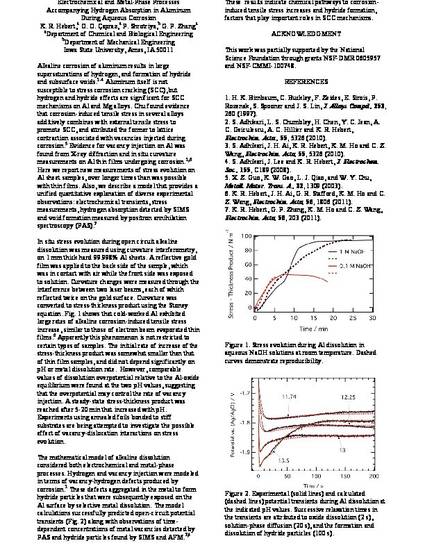
Alkaline corrosion of aluminum results in large supersaturations of hydrogen, and formation of hydride and subsurface voids.1-4 Aluminum itself is not susceptible to stress corrosion cracking (SCC), but hydrogen and hydride effects are significant for SCC mechanisms on Al and Mg alloys. Chu found evidence that corrosion-induced tensile stress in several alloys additively combines with external tensile stress to promote SCC, and attributed the former to lattice contraction associated with vacancies injected during corrosion.5 Evidence for vacancy injection on Al was found from X-ray diffraction and in situ curvature measurements on Al thin films undergoing corrosion.1,6 Here we report new measurements of stress evolution on Al sheet samples, over longer times than was possible with thin films. Also, we describe a model that provides a unified quantitative explanation of diverse experimental observations: electrochemical transients, stress measurements, hydrogen absorption detected by SIMS and void formation measured by positron annihilation spectroscopy (PAS).
Available at: http://works.bepress.com/kurtr_hebert/7/
